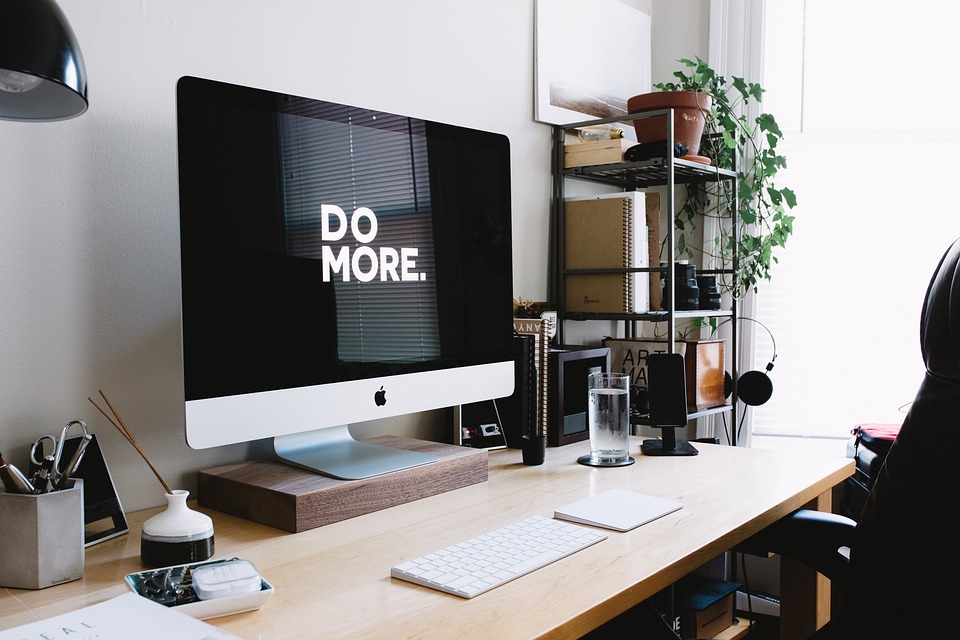Many believe office workers have got off lightly, escaping the daily grinds of lifting heavy materials and the often miserable British weather. While we may have the comfort of a warm workspace, it doesn’t mean our job doesn’t sometimes take its toll on our body and minds. While we know massage to be insanely therapeutic after being overworked, it’s not often discussed how undertaking regular massage therapy can improve your performance in the office. So here’s how:
Office niggles and how massage helps
For many of us, we endure eight hours of sitting at our desk each day – only leaving to grab our pasta salad for lunch or the odd toilet break. No matter how much we try to reinvent our positioning and how comfortable our chair is, over time we all become riddled with what is known as the ‘office bad back.’ NHS health experts advise that readjusting your workstation layout every so often and leaving your desk every half an hour can help prevent this. However, once aches and pains are onset a Swedish massage can help.
Before undertaking the bodywork, the therapist discusses any ‘problem areas’ you may have and inspects the back to find knots which need more attention paid to. Muscle knots usually result in inflammation from the stress hormone, cortisol and builds around the neck, back and shoulders – making the body feel very tense.

To commence the massage, the therapist uses what is known as the effleurage technique. Effleurage uses long, gentle and gliding strokes to warm up the muscles for more vigorous bodywork. They will then be able to transition into petrissage, which uses kneading sensations to break down the adhesions and realign the muscle tissue – which eliminates cortisol. This makes you feel less stressed and reenergised, perfect for productivity at work.
The human body is designed to walk around, with sitting down in a chair all day resulting in slumping, however by manipulating the muscles you’re posture, flexibility and range of motion is improved. A study by Internal Medicine found 74 per cent of 274 patients to find massage ‘very helpful’ for relieving back pain. The author of the study wrote “massage might be an effective alternative treatment to conventional painkillers.”
Back pain is not the only downfall of sitting down at work all day, blood circulation also suffers and is often slowed down. Poor circulation results in tingling, numbness and pins and needles, however softly manipulating the muscles encourage a healthy blood flow.
So, how many times do you arrive at work yawning, rubbing your eyes and stretching whilst you beat yourself up inside for staying up the extra hour to watch Family Guy? No matter how often this happens, we all struggle to learn our lesson. According to a survey by Travelodge, the average UK adult sleeps for just over six hours each night, which is two hours below the sleeping experts recommendation.
The lack of sleep cycle is vicious and is most likely to make you feel lethargic during the day but awake at night. Turning your phone off, having a hot bath and reading a book can all contribute to a better night’s sleep, but a massage can also help. The Swedish style is world renowned for being incredibly relaxing – many people often fall asleep during the bodywork. The soothing strokes eases muscle tension and improves the oxygen and blood flow. This in turn, reduces fatigue and promotes better sleep.

A study by The Touch Research Institute at the University of Miami divided participants into a standard patient control group and massage therapy. Those receiving massage undertook the bodywork once a week over one month. The study concluded that those assigned massage felt boost in a mood and lower scores of sleep disturbances, ultimately allowing them to function better during the day.
One of the withdrawals of an office job is being glued to a screen all day staring at spreadsheets or copious word documents. This results in strained eyes which triggers tension headaches. While paracetamol can ease us through the day, many office workers crave a more natural pain relief method with the fear of becoming immune to the tablets. The rubbing motions of massage triggers the rush of the body’s natural painkillers, known as endorphins.
Endorphins mask the pain from entering the central nervous system, which ultimately gives the body and mind rewarding relief. A study by the Touch Research Institute assigned 26 headache suffers to receive two 30 minute massages over a five week period. They concluded the participants had decreased pain, less headaches and better sleep, perfect for improved performance in the workplace.
According to WebMD, 40 per cent of workers admit to experiencing office stress. With more than one quarter admitting that work to be the biggest cause of stress in their lives. Stress in itself causes a variety of symptoms, including high blood pressure and suppressed immune system – which makes getting ill more likely. As mentioned before, the soothing strokes of massage eliminate cortisol, which in turn boosts oxytocin and serotonin levels.
Oxytocin and serotonin are ‘feel good’ hormones which revive the body and mind, giving the person a better outlook and more motivation to work. A study by The Touch Institute measured levels of cortisol before and after massage for 500 participants who suffer from stress. The study concluded cortisol dropped by 53 per cent.

While you may not suffer from office niggles it’s not to say they won’t become onset in the future. It’s as important to get massage for relief as it is to prevent aches, strains and pains. This is because massage ensures the muscles are flexible, pliable and taken care of. National massage trainer from Exhale Spa, Will Lewis believes massage is as important as healthy eating and regular exercise (without being a chore!) Lewis defined it as an “important component of health maintenance.”
As well as a Swedish massage, sports massage, Shiatsu and the Thai style can also boost your performance in the workspace. Sports massage is most commonly used to prepare and revive athletes ready for a big event, with the same principle applying to office workers. The powerful strokes of the sports style stimulate motivation and improved concentration for work. Sports massage is also beneficial for those who suffer from specific chronic pain, usually caused by sitting at a desk for long hours.
Thai massage is often referred to as the ‘lazy person’s yoga’ and encompasses a wide range of benefits for those working in an office. By using stretching, pulling and rocking techniques the bodywork relieves headaches, muscle pain, improves flexibility and calms the nervous system.
Some possible risks
While massage poses a variety of benefits to boost work performance, just like any treatment it isn’t suitable for everyone and does sometimes have harmful implications. Avoid massage during: recent surgery, Infectious illnesses/diseases(including the flu), Fractures or sprains, diabetes, Kidney failure related disorders, Open sores/ fresh wounds
If you have cancer, are pregnant or have HIV you should seek approval from GP or physician if massage is the right option for you.
Get massaged
Don’t let this put you off, for 99 per cent of us massage is completely safe and poses no side effects, with copious benefits! If you want to start your massage journey today, consult a certified massage therapist near you, to discuss your office niggles and find a style and treatment plan which will benefit you the most. Unlike work, massage is an euphoric experience, so enjoy it!
To suit best your busy schedule try out outcall massage London – http://www.oriental-massages.co.uk/outcall-massage-london/
